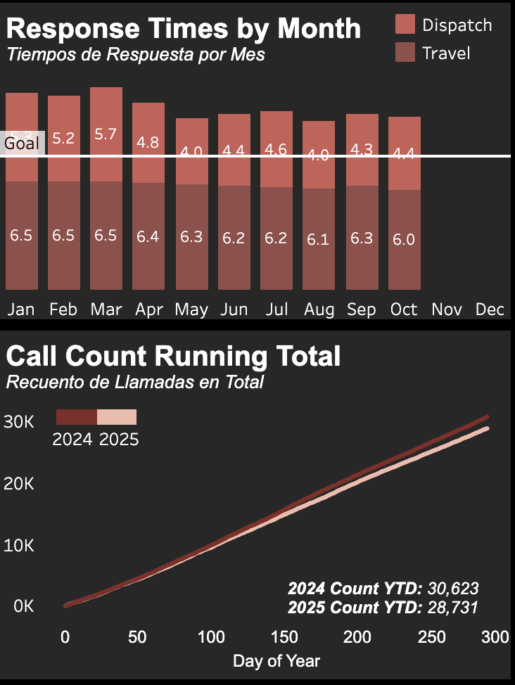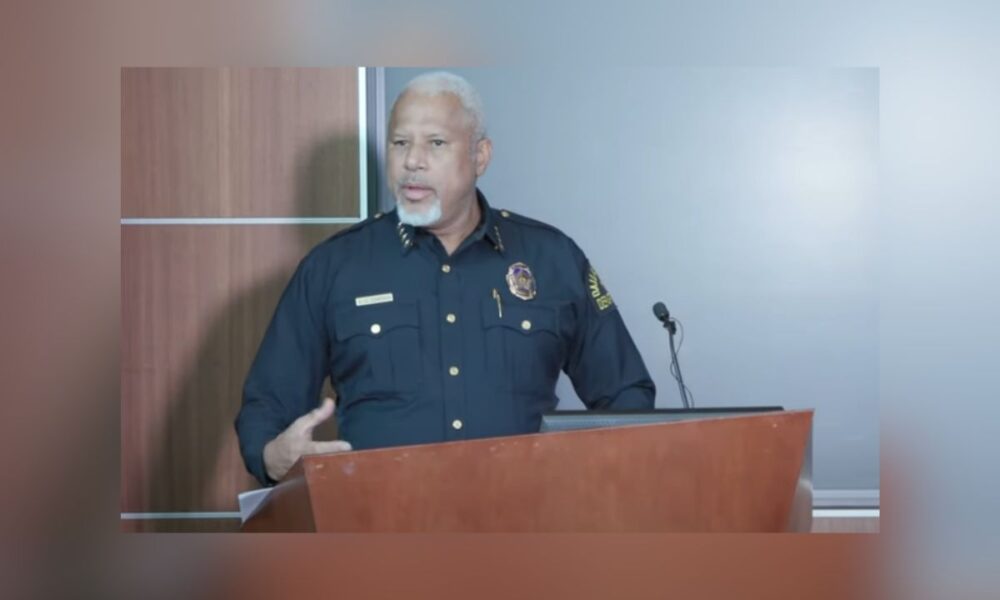Dallas Police Chief Daniel Comeaux rejected a multimillion-dollar offer to help federal immigration enforcement, even after the city fell short on police staffing and funding.
The Dallas Police Department recently turned down a $25 million offer to join ICE’s 287(g) program under the Department of Homeland Security, which reimburses local police for helping enforce immigration law, Comeaux said during an October 14 meeting of the Community Police Oversight Board.
“We were contacted by the federal government – I think it was last week, or within the last two weeks – and we were offered $25 million to be a part of 287(g),” Comeaux said. “We said, ‘Absolutely not, no.’ That was me who said that, turned it down.”
Comeaux rejected the ICE funding after Dallas’ new budget fell short of the statutory requirement to maintain at least 4,000 police officers and to offer combined salary and benefits among the top five in the metroplex, as The Dallas Express reported.
During the meeting, Comeaux said Dallas police have not been helping ICE with many investigations, but city rules require officers to assist if they request help.
“Right now, we have had very little interactions with ICE on anything. That’s the truth about what’s happening in Dallas right now,” he said. “I have a really good relationship with ICE, and they have not requested our assistance to go out and assist with them in the streets.”
Comeaux debunked several rumors that Dallas police have been working with ICE. He said officers have simply helped federal authorities like the U.S. Marshals target human traffickers and sex offenders.
“Some of the things that are being posted and being said are just absolutely not true,” Comeaux said. “It’s not happening in Dallas.”
Corbin Rubinson, Dallas police public information officer, told The Dallas Express the department will help federal law enforcement while focusing on its core mission.
“The Dallas Police Department and Chief Comeaux are focused on serving our city by answering 9-1-1 calls and aggressively fighting violent crime,” Rubinson said. “Federal authorities have a different mission with the same importance.”
Funding To Help ICE
DHS offered Dallas police $25 million to join the 287(g) program, according to Comeaux. The program confers federal immigration-enforcement authority on local police and reimburses them for assisting federal officers.
DHS announced new funding opportunities through the program beginning October 1. ICE offered to fully reimburse participating agencies for the annual salary and benefits of each officer trained in 287(g) and to award bonuses for locating wanted criminal aliens.
“ICE is not only supercharging our hiring, we are also multiplying partnerships with state and local law enforcement to remove the worst of the worst, including murderers, gang members, rapists, terrorists, and pedophiles from our country,” ICE Deputy Director Madison Sheahan said in a September press release.
Across Texas, 185 agencies – including the Denton and Tarrant county sheriff’s offices, and multiple police departments across the metroplex – work with ICE under the program.
When The Dallas Express asked Rubinson how Dallas police cooperate with ICE, he pointed to the department’s operating protocols.
Dallas police officers are barred from arresting illegal aliens due to their immigration status, according to the protocols. They may not stop anyone for the purpose of determining their immigration status, and they must presume that anyone with a valid ID has lawful presence in the United States.
“Officers are permitted, but not required, to ask about the immigration status only of those persons who are lawfully detained or arrested,” the protocols read. “However, officers may not arrest an individual because he or she is undocumented.”
Staffing, Budget Shortfalls
Comeaux rejected the ICE funding, despite the department’s current shortfalls per Proposition U, a measure that voters passed in November 2024, setting police staffing and pay standards.
Proposition U requires Dallas Police to maintain a minimum of 4,000 officers and to rank among the top five North Texas departments for combined salary and non-pension benefits among agencies serving populations above 50,000.
But Dallas’ new budget only anticipated hiring 350 more officers in FY 2026, ending the year with 3,424 sworn officers – 576 short of the statutory minimum. One regional pay comparison suggested the department’s base starting pay would rank 12th among area departments – seven ranks below the minimum.
Dallas police have made a slight improvement in emergency response times this month and year-to-date.
According to the October 13 City Response Time Report, officers are reaching top-priority emergencies in about 10.4 minutes on average month-to-date—their fastest pace this year but still above the city’s 8-minute goal. That figure includes 4.4 minutes for dispatch and 5.9 minutes for travel.

Dallas Police Department response times for top-priority emergencies averaged 10.36 minutes as of October 13, 2025, city data show.
Year-to-date, officers average 10.97 minutes, compared with 11.27 minutes during the same period last year, a marginal 3 percent improvement.
The report also shows a 7.79 percent drop in total dispatched calls—28,781 so far this year compared with 31,212 last year—which may have contributed to the modest speed-up.
When officers with the Plano Police Department chased suspects into Dallas in September, the pursuit ended in a crash at 7:12 p.m., as Fox 4 reported. Plano police managed the scene for hours before Dallas officers arrived at 11:15 p.m.


